This article has been sponsored by LIC HFL.
When Munmun Sarkar, a female toto (e-rickshaw) driver from Siliguri, took to the streets in 2012, she was addressed by many names — ‘Don didi’ and ‘Jhansi ki Rani’ to name a few. But what started out as a personal attempt to be fearless in a profession usually dominated by males turned into a blessing for many when Munmun began ferrying COVID-19 patients to hospitals when the pandemic struck the nation.
As she explains, “I saw that ambulances were charging extremely high fees. So, I put out my number and asked people who had either contracted COVID-19 or needed the vaccine or get tested or admitted to a hospital, to contact me. I promised to reach their doorsteps immediately and provide my services for free.”
Munmun’s courage and zeal helped over 8,500 COVID-19 patients. She not only took them to the hospital but brought them safely back home following recovery. The toto that had once brought her contempt, was now bringing her honour.
On hearing Munmun’s story, filmmaker Mahak Agrawal was captivated by the Siliguri resident’s sheer willingness to help, even amidst the backlash she faced from her own community. Agrawal was keen on taking this story of indomitable courage to the world.
She saw the opportunity to pursue this by participating in the documentary-making contest ‘LIC HFL Womentaries — Her Story, Your Lens’ A CSR initiative of LIC Housing Finance Ltd in partnership with The Better India.
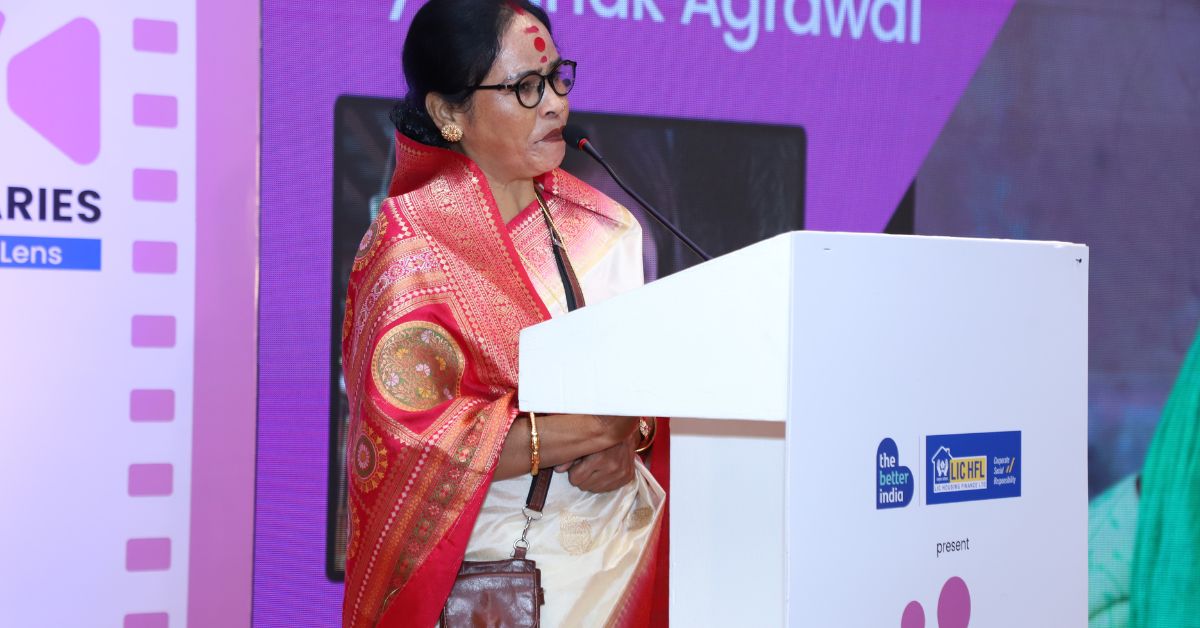
LIC HFL Womentaries — Her Story, Your Lens
The crux of the initiative was to highlight and commemorate the triumphs of Indian women changemakers who have made a significant impact on grassroots empowerment. The initiative was conceived by LIC HFL and executed in partnership with The Better India, renowned for showcasing stories of resilience demonstrated by countless Indians. Together, they joined forces with young and aspiring documentary filmmakers to shine the spotlight on women who have created a significant social impact in their communities.
The aim of the contest was to inspire India’s budding filmmakers and nudge them to discover stories within their neighbourhoods, focusing on women who were breaking barriers and emerging as changemakers. And the response was phenomenal.
The first round of shortlisting saw 305 registrations pouring in from all corners of India, with participants submitting compelling storylines and documentary film concepts. Following a rigorous screening process, the top 50 entries, deemed the most powerful, were chosen to create five-minute films.
These contestants underwent an enriching online masterclass conducted by a professional documentary filmmaker. They were then given a 20-day period to shoot and edit their films.
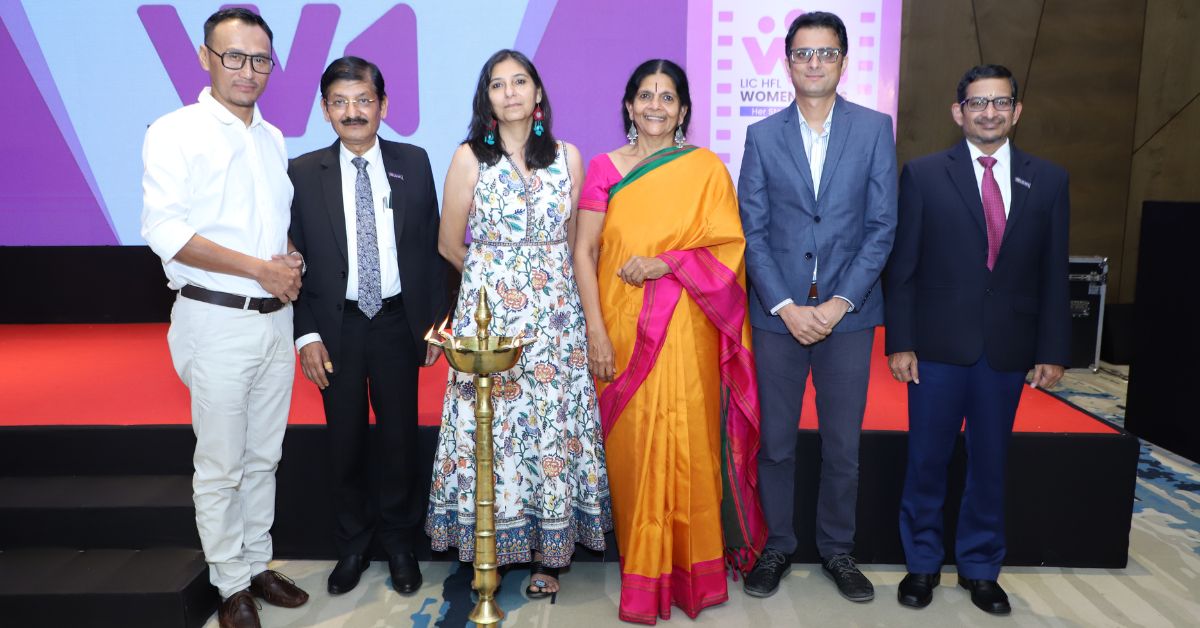
The films were reviewed by a panel consisting of The Better India, LIC Housing Finance Limited (LIC HFL), and a jury member. The top 10 most compelling stories were selected based on their impact, coverage of the initiative, storytelling, and technical aspects like film quality, editing style, sound design etc.
Provoking change through storytelling
What resonated the most among the audience who watched the top 10 film trailers was the perseverance of these women changemakers.
Right from filmmaker Akash Fuke’s documentary highlighting Dr Sucheta Dhamane’s work which provides mental health support to marginalised women; or Damayanti Saha’s documentary on how Himachal’s rural women are being empowered by Surabhi Yadav; to Datta Lawande’s film that talks about the atrocities of prenatal sex determination and one woman Varsha Deshpande’s attempt to expose this; and Payal Khurana’s story exploring the journey of Deepika Dhiman and how she used karate to bring glory to India — each film left a unique impact behind.
While these films chronicled the women’s work, there were others that underlined the massive impact they had on their communities. For instance, Hemant Bhati’s documentary spoke about Vimla Devi Kumawat who dedicated 25 years to nurturing 500 underprivileged children, while Mamta Singh’s documentary celebrated the journey of Geetanjali Babbar whose work has enabled former sex workers in Delhi’s red light district to better their lives.
While these stories of resilience are important, it is also fascinating to explore how these women inking the right partnerships is equally crucial. For instance, Nari Shakti Puraskar recipient Ruma Devi managed to empower 3,00,000 women through traditional handicrafts and continues to do so.
But, the three films that bagged awards stood out for the simplicity of their storylines while driving home the message of change.
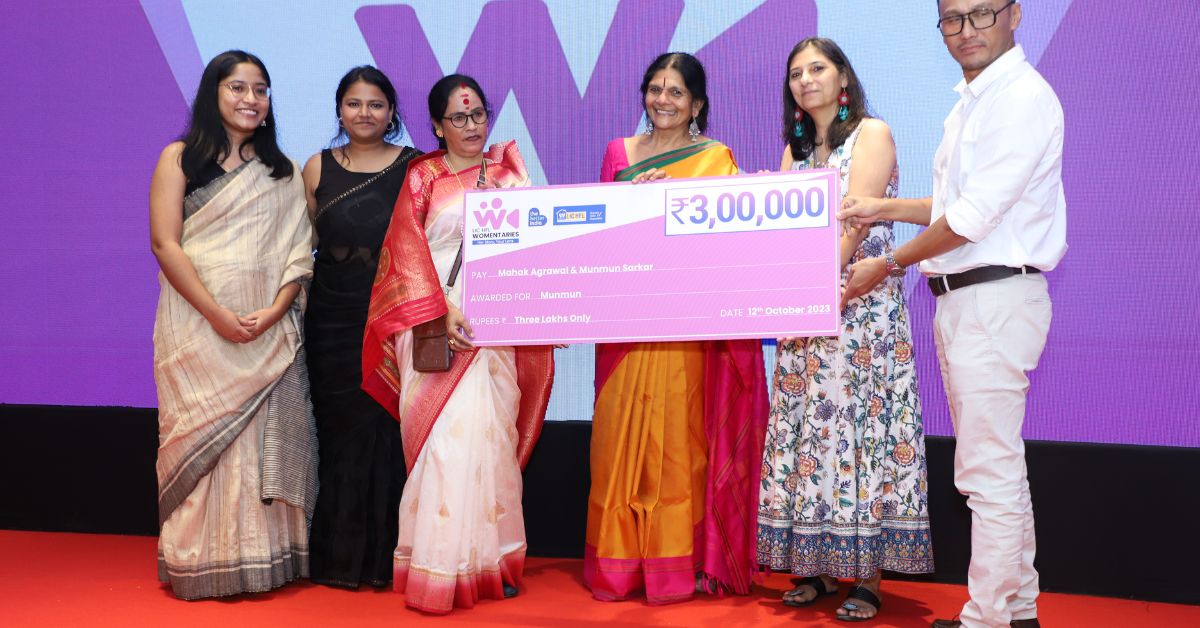
The first prize was bagged by filmmaker Mahak Agrawal whose short film about Munmun Sarkar won all hearts. The duo was presented with a cash prize of Rs 3 lakh.
The first runner-up were filmmaker duo Aashna Dhiman and Tejal Dua who chronicled the journey of Dharavi resident and football prodigy Gulafsha Ansari.
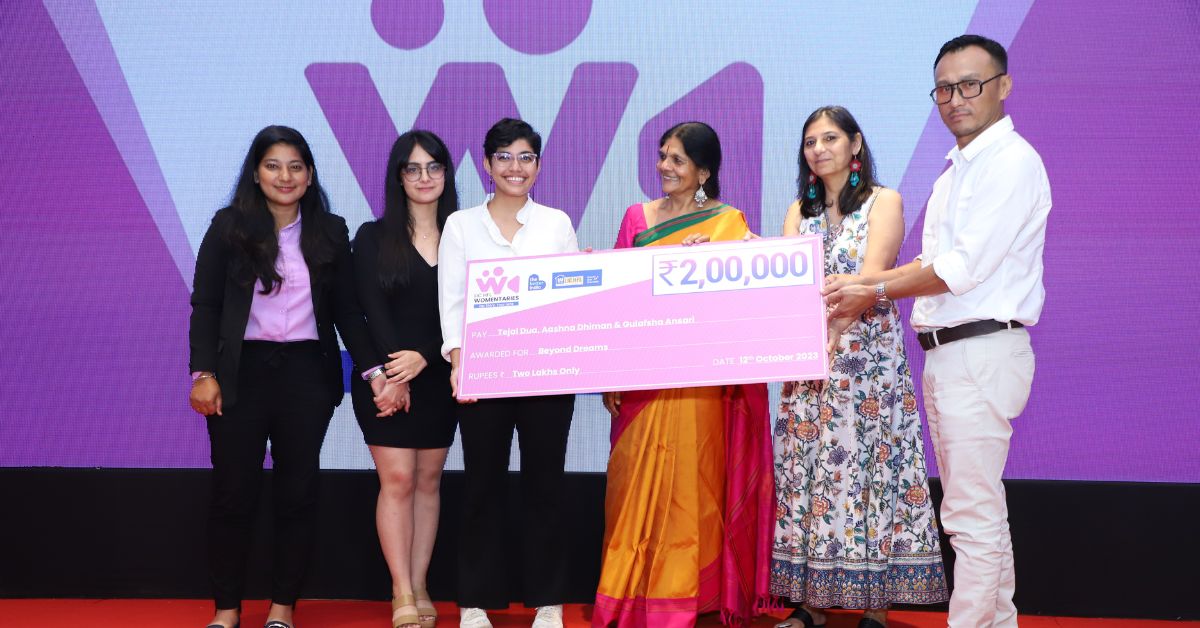
The storyline showcased Ansari’s journey from a timid girl to an inspirational footballer, coach, and advocate for gender equality. They were presented with a cash prize of Rs 2 lakh.
The second runner-up spot went to filmmaker Dileep Rangan T whose story of Selvi Kumar — an entrepreneur from Chennai’s outskirts who worked towards community betterment — was acclaimed.
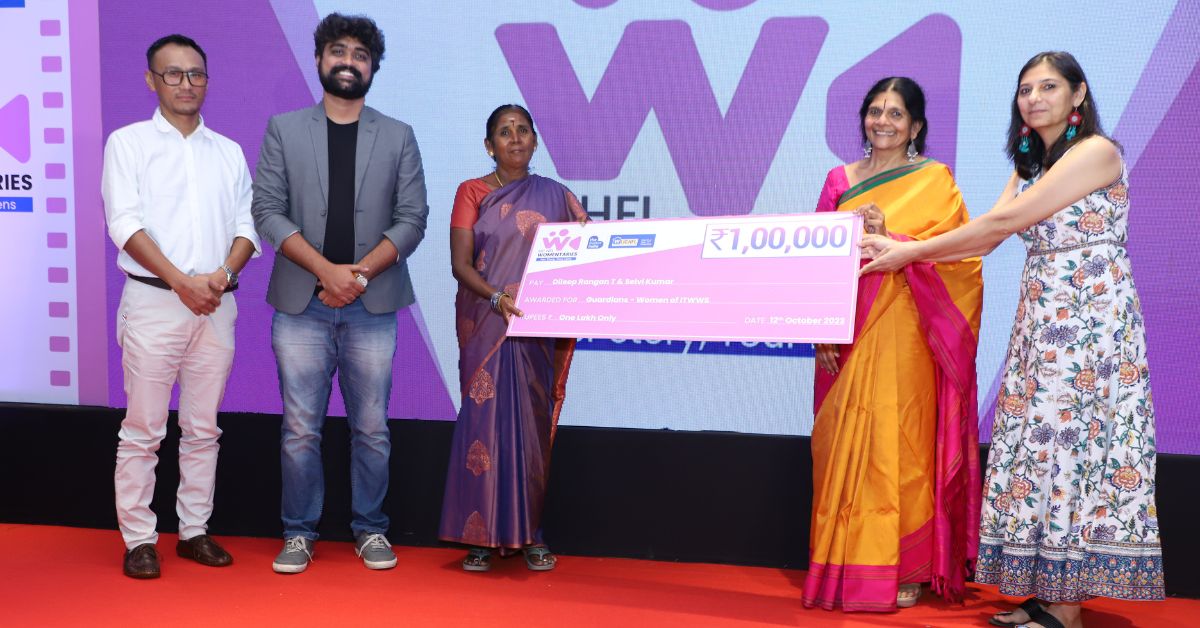
To ensure fair recognition and appreciation, the prize money will be split equally between the documentary filmmaker and the protagonist of the film.
Edited by Pranita Bhat
No comments:
Post a Comment